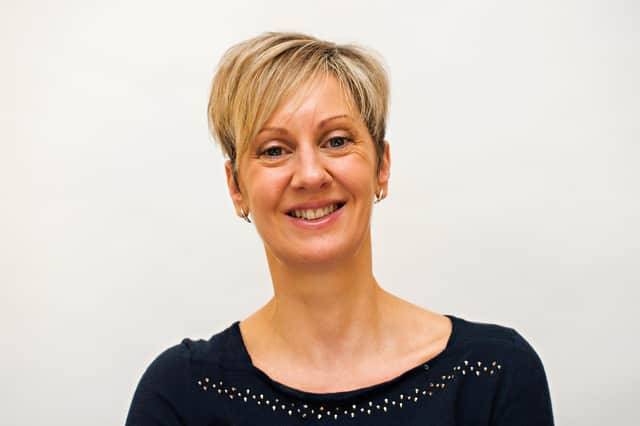Let’s make mental health care a reality for all - Louise Christie


The World Mental Health Federation frames the theme slightly differently as mental health in an unequal world. The key message is the same – access to quality mental health support is unequal and often challenging.
When we talk about inequality in Scotland and the wider world the focus tends to be on the research - the facts and figures. We need to know this but we seem to get stuck on what is wrong rather than it being a starting point for more practical action to make things better. Shouldn’t we be focusing on the more important question of how we move forward? Shouldn’t we be asking people what they need to flourish and experience good mental health and wellbeing?
Advertisement
Hide AdAdvertisement
Hide AdPositive, sustainable change needs to happen with people, not to people. We know that people living with mental health problems in Scotland face discrimination and a whole range of barriers when trying to access support. As we address inequalities the contribution of people with lived experience of mental health problems is crucial. A participant at one of our conversation cafés put it well “We are all experts in our own way because of our lived experience and that should be valued”. People have a wealth of experience, skills, and knowledge. Their strength and learning should be at the heart of designing and developing mental health support.
When it comes to accessing help, one of the major challenges is a lack of clear routes to different types of support. One size does not fit all. Often when we talk about mental health the focus immediately goes to existing NHS mental health services. These services were unable to meet demand before Covid and continue to struggle. It’s time to recognise that the NHS is only one part of a much wider picture of mental health support that needs investment and development.
Towards the end of 2020 Scottish Recovery Network invited people, organisations and services to take part in a national conversation about the future of mental health recovery in Scotland. People said they wanted a mental health system that tackles inequalities and contributes to a fair society. They asked for a system that takes a whole person approach. As a country this includes addressing difficulties getting and retaining employment, feeling part of the community, the ability to exercise rights as citizens and maintaining the family and community connections we all need to live a good life.
People want a mental health system that is easy to access and one that offers more options and community-based support. Help would be available “at the right time”…”consistently”. There is a call for a joined up, collaborative approach which works across different sectors and services. Wouldn’t this mean more immediate help, choice and person-centred care?
Change can be difficult but we are not starting from scratch. There are growing efforts to make sure the voices of lived experience are heard and examples of good recovery focused approaches we can build on. New effective ways of working such as peer support services and groups. Where people with shared experiences can come together not only to support each other but to work with the decision-makers to shape the future. Other initiatives include open access drop-ins, link workers or community connectors. Recovery colleges are also becoming part of the landscape and interest in them is increasing.
As we plan for the future, we need to be ambitious and learn from the innovation and change of the last 18 months. Let’s take this opportunity to work together to create a cross sector mental health system. One that nurtures the NHS, third sector and all that good practice happening on the ground in communities.
Let’s embrace the value of lived experience and give people different, easily accessible routes to support where, when and for however long they need them.
Let’s make mental health care a reality for all.
Louise Christie, Director, Scottish Recovery Network
Comments
Want to join the conversation? Please or to comment on this article.